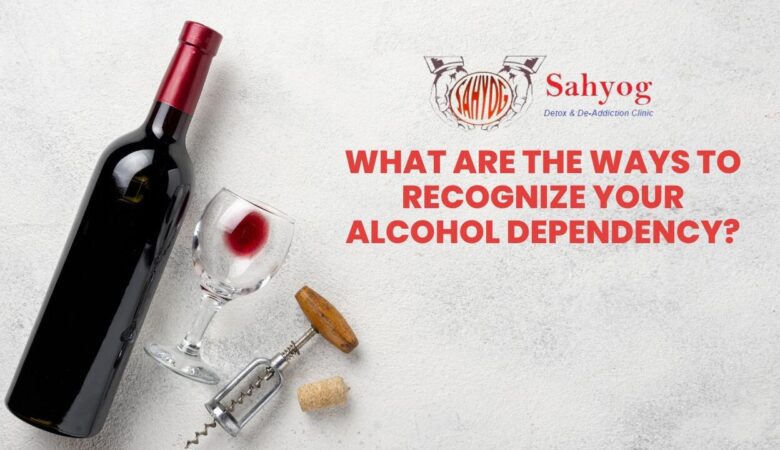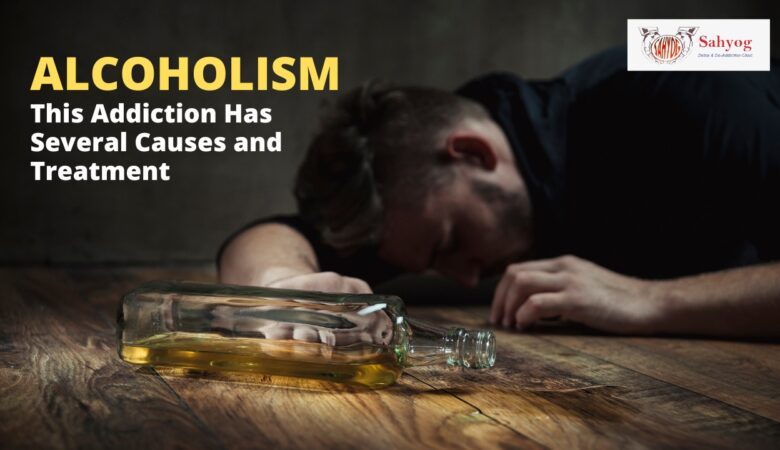What are the ways to recognize your alcohol dependency?
Alcohol dependency is any desire to control your drinking or continue drinking despite problems in your life that are caused or worsened by drinking. So, how do you know if you have an alcohol dependency? Most people with an alcohol dependency have experienced negative consequences of drinking, such as job loss, accidents, and other issues caused by the amount they drink, their inability to stop once they’ve started, or their withdrawal symptoms when they try to quit. Alcohol dependency can start off innocently enough, with just an occasional beer or glass of wine to have fun and unwind after work or during the weekend. While it’s entirely possible to enjoy alcohol in moderation, it becomes an issue when your drinking begins to take over your life and interfere with your ability to do things you enjoy or need to do, like go to work, spend time with your family, or get enough sleep. If you find yourself facing these issues with alcohol, then you might be developing an alcohol dependency and should consider seeking help from someone with experience treating addiction issues. Physical Dependency Alcoholism is a physical dependence on alcohol. This means that your body becomes used to having alcohol in it, and you need alcohol to function normally. Some signs of physical dependence include: needing more and more alcohol to feel the same effects feeling withdrawal symptoms when you don’t drink, such as shaking, sweating, or nausea drinking alcohol even though it’s causing problems in your life—spending large amounts of time getting alcohol, drinking, or recovering from its effects being unable to control how much you drink or stop once you’ve started drinking having trouble remembering things that happened while you were drunk—missing school or work because of drinking too much breaking promises about not drinking any more or staying away from certain places where you know people will be drinking feeling guilt after doing something bad, like hurting someone else, driving recklessly, neglecting responsibilities at home, etc., and knowing that alcohol was involved in the situation but still drinking. If any of these apply to you, you may have a problem with alcohol use and should talk to your doctor about treatment options. Mental Dependence When you’re dependent on alcohol, you can’t imagine life without it. You think about drinking all the time and feel anxious when you’re not drinking. You also build up a tolerance, so you need to drink more and more to get the same buzz. Physical Dependence (five sentences): When you’re physically dependent on alcohol, you experience withdrawal symptoms like shaking, sweating, and nausea when you try to quit. You might also have blackouts, meaning you can’t remember what happened while you were drinking. Mental and physical dependence can be signs of addiction. Addiction is characterized by an inability to control your intake of alcohol despite negative consequences. There’s no set number for how much is too much for every person, but any form of alcohol use disorder could lead to problems in relationships, health, or employment. If you’ve been diagnosed with alcoholism or know that your alcohol use has crossed into unhealthy territory, there are treatment options available. These range from self-help groups like Alcoholics Anonymous to detox programs that address the mental aspects of addiction as well as the physical cravings. Some people opt for outpatient care, which may include therapy sessions, group counseling, or medication to help them transition back into sobriety. Whatever option you choose, professional help is essential to successfully overcoming alcohol abuse. Remember that you don’t have to go through this alone. The first step is admitting there’s a concern, and then seeking resources that will help take you down the path towards recovery. It won’t be easy, but it will definitely be worth it. Psychological Dependence Long-term alcoholics often develop a psychological dependence on alcohol. This means that they feel that they need to drink to cope with their problems, relieve stress, or feel happy. They may try to quit drinking, but find that they can’t because they’re too anxious or depressed without alcohol. If you think you might be psychologically dependent on alcohol, talk to a doctor or therapist who can help you assess your dependency and find treatment options. Alcohol is a powerful drug, so it’s important not to try quitting cold turkey. You may need medical supervision while withdrawing from alcohol. It’s influential to have people around you who will support you and keep an eye on your progress during this time. Some people may also require medication like Xanax (alprazolam) for anxiety, Valium (diazepam) for depression, or Vivitrol (naltrexone) for cravings and relapse prevention. Remember that alcoholism is a chronic disease; you don’t get over it, you manage it. Make sure to take care of yourself by getting plenty of sleep, eating well, staying active, and practising relaxation techniques. And make sure not to have any expectations of being normal again—this feeling will only lead to disappointment when things don’t go as planned. If you start feeling better about life, then congratulations! You’ve successfully made it through one day of sobriety. If you still want to continue sobering up, let someone know what you’re doing. Sometimes people become tempted after all the hard work they put into sobriety and may want to give up before anything has been accomplished. Another way to tell if you are addicted is if other behaviours in your life change because of how much you drink. For example, if you were previously able to maintain healthy relationships with friends and family members but now can’t seem to function properly without alcohol, there could be a problem. Additionally, those who use alcohol excessively sometimes have legal concerns due to drink-driving or public intoxication arrests. However, these factors do not always mean addiction. In numerous instances, it takes several years of regular heavy drinking before developing an addiction. Alcoholism is characterized by continued consumption of alcohol despite obvious physical or social consequences, including occupational hazards, violence, financial difficulties,


